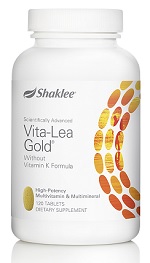Supplements
Review: Best Multivitamin
Daily Multivitamin
Fat And Water Soluble Vitamins
Good Daily Multivitamin
Vitamins and the Body
Minerals
Vitamina y Nuestro Cuerpo
Sitemap
|
Special Vitamin And Nutrient Needs Of Seniors
 For many of us, though we might be a few years older than a lot of other people, we are not necessarily always wiser. For many of us, though we might be a few years older than a lot of other people, we are not necessarily always wiser.
When it comes to wise nutrition choices, you would think that by the time people reach what should be their "golden years" they would not only understand the importance of eating nutritionally-balanced meals. They'd be fairly well-practiced in doing so as well.
Unfortunately, the truth is, that, for a number of different reasons, seniors often do not get the vitamins and minerals their aging bodies need to fight the onset of debilitating conditions including the signs of aging.
Not only do they fail to take in enough of the nutrients they need in their diets, as people age, their bodies naturally become less efficient at
using the nutrients they DO get. To compound this situation, seniors generally develop more illnesses and as a result, tend to take more medications than other age
groups. Many of these medications will also adversely affect the way the body breaks down, distributes, and uses nutrients.
It is a common fact as well that seniors are living alone and often do not feel the need or the desire to prepare nutritionally-balanced meals. Add to this the fact
that most seniors don't even do moderate exercise
on a regular basis and you can understand why it's no wonder seniors so frequently exhibit the symptoms of different vitamin deficiencies. As advanced as society is, a good percentage of seniors are considered "undernourished".
These vitamin deficiencies can be especially devastating in seniors. Broken bones can be one result, slow healing another. At least one vitamin deficiency, that of Vitamin B12 can have symptoms which can be mistaken for dementia or even Alzheimer's.
If we look at a few examples, we realize that Vitamin D is as important
to seniors as it is to children. It plays a vital role in the body's ability to absorb calcium, which is required
to keep bones healthy. Without calcium, another important nutrient seniors have difficulty getting and using, bones lose their mass,
become brittle and this results in osteoporosis. Few seniors consume the proper amount of dairy products to ensure the body gets ample amounts of
vitamin D, and spending time in the sun to help the body generate it can have its own health issues for many.
Another serious condition confronting seniors, and, to tell the truth, is the oxidation damage which is caused by free radicals. These are unstable molecules that,
when left on their own, run rampant throughout the body, destroying healthy cells. Oxidation is the same process that causes rust to develop on cars.
A particular group of nutrients, antioxidants, work to neutralize these free radicals. This process inhibits
the amount of damage they cause. Fruits and vegetables are the best sources of antioxidants. They also contain beta-carotenes and a number
of important vitamins including Vitamin A, C
and E, yet few seniors consume the required amounts.
As, over time, healthy cells within the body become damaged, seniors increase their risks of developing heart disease, arthritis, certain forms of cancers, cataracts, Parkinson's disease and many other disorders. Antioxidants also keep the immune system functioning properly. As healthy skin cells break down, skin loses its elasticity and begins to sag, wrinkle and look older.
By the way, just so you don't think that your life will now revolve entirely around raw vegetables, and taking a daily multivitamin (which is a good thing anyway), red wine and dark chocolate also supply antioxidants.
Thought that would get your attention!
To continue; the body needs Vitamin K to keep its blood clotting mechanism
functioning properly, yet once again, few seniors get enough. The absence of Vitamin K is believed to possibly be linked to the onset of Alzheimer's disease.
The list of conditions that result from vitamin deficiencies can go on and on. All of us, regardless of age, need to understand the importance of
giving our bodies the proper nutrients required to maintain good health.
If you're not getting the right mix of nutrients from your diet, regardless of the reason, it may be a good idea to supplement your diet by taking a daily multi-vitamin. For the most benefit, seniors especially should choose one that has been formulated to suit the changed dietary needs of older individuals.
RELATED ARTICLE B12 Deficiency In Seniors
Why Diets Don't Work | Sitemap
Article: Special Vitamin And Nutrient Needs Of Seniors- Copyright 2023 by Donovan Baldwin
Page Updated 1:05 PM Monday, July 3, 2023
|


